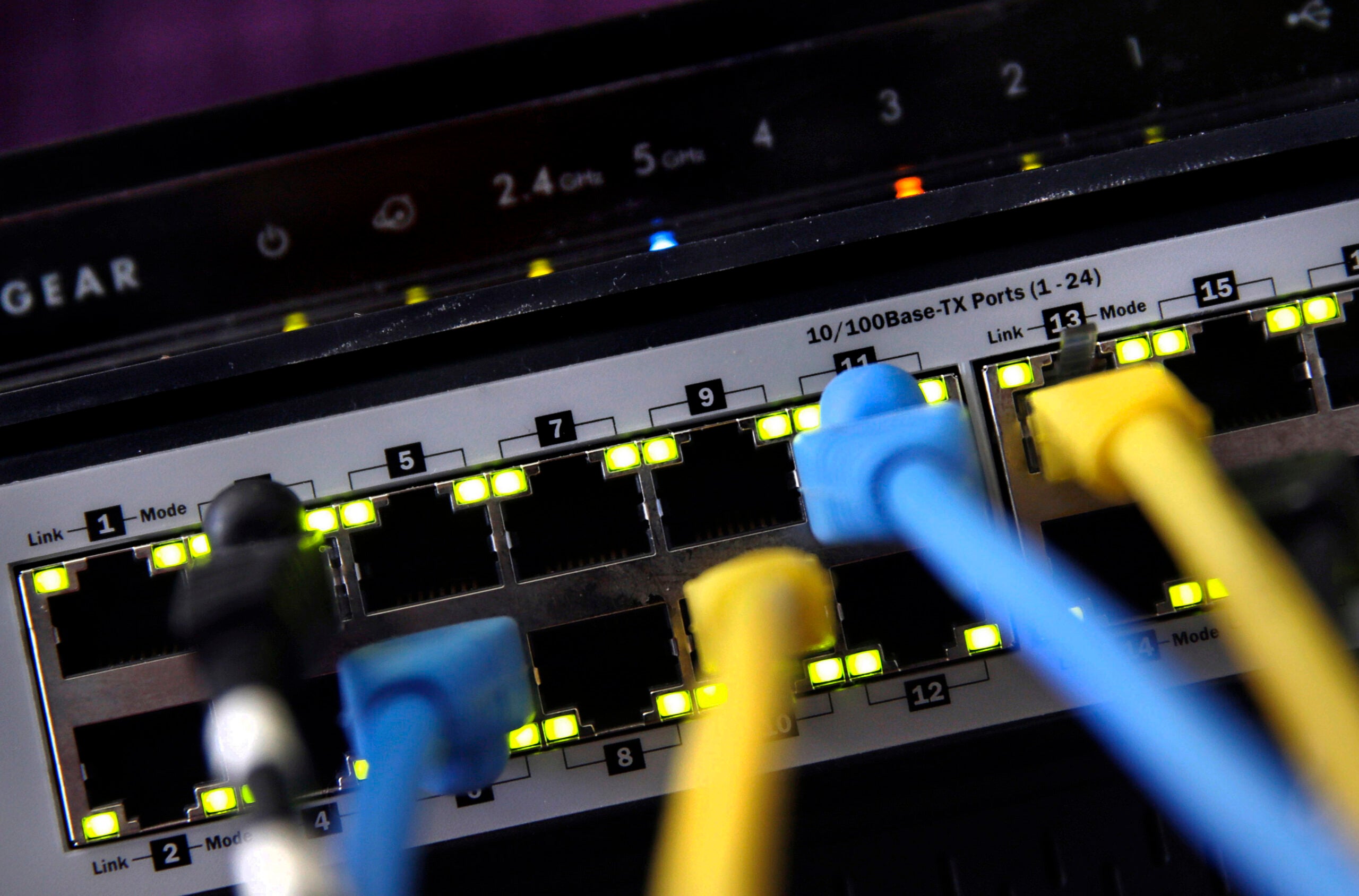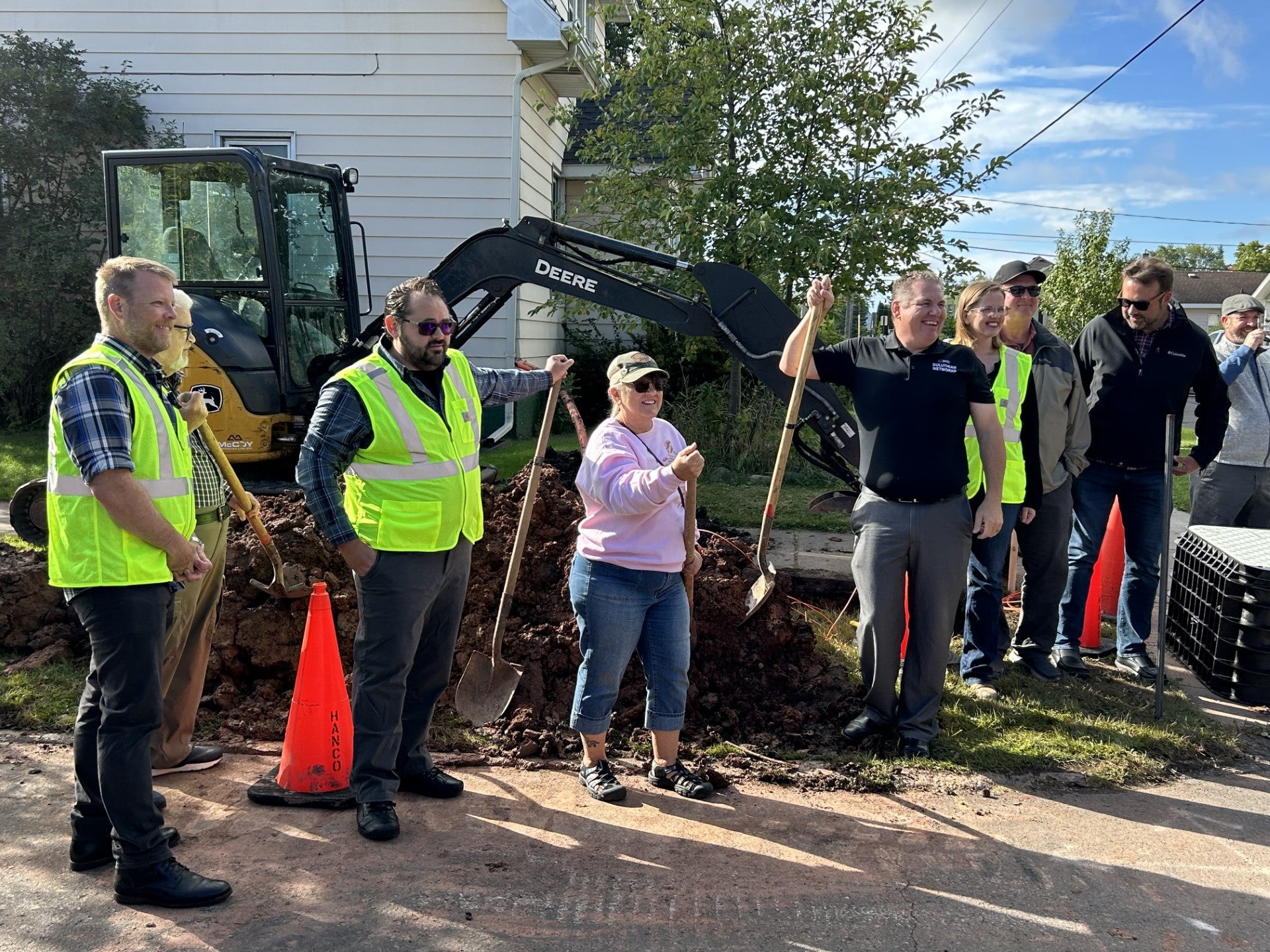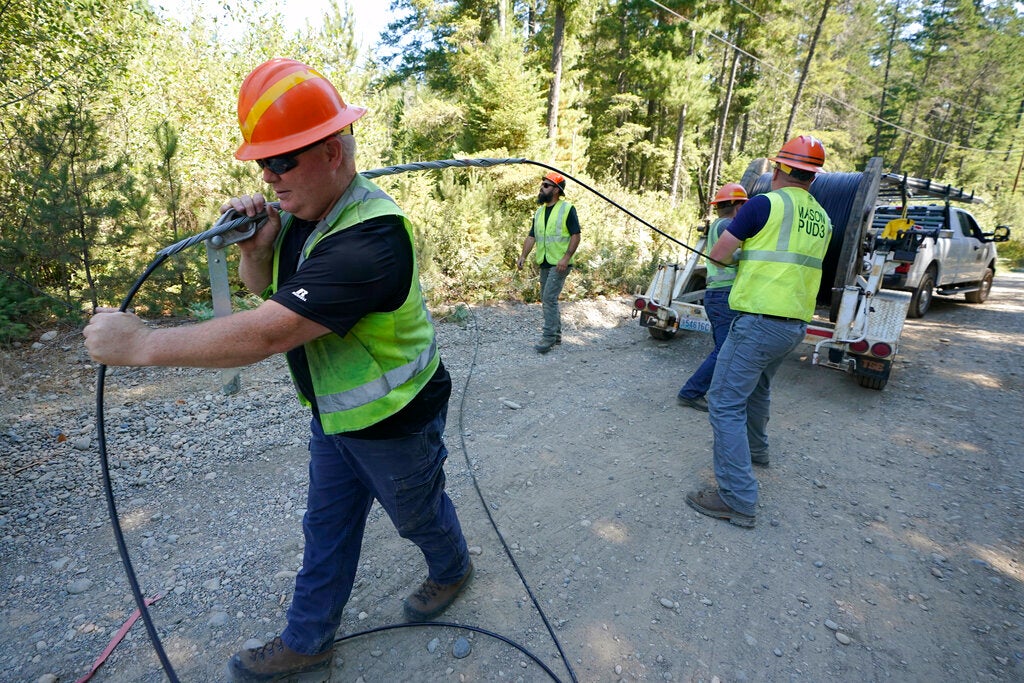Gov. Tony Evers is creating a task force to address broadband access in Wisconsin.
The task force will be charged with promoting broadband expansion and researching policies and projects to meet the state’s goals. One of those goals is providing affordable broadband internet access to all residents by 2025.
“The (coronavirus) pandemic itself has really given us an opportunity to think through how important broadband is to the people that are working from home, telemedicine, virtual classrooms and so on,” Evers told WPR. “So, it has re-engaged us and something that we knew already. And that is that broadband is an important utility as important as electricity.”
News with a little more humanity
WPR’s “Wisconsin Today” newsletter keeps you connected to the state you love without feeling overwhelmed. No paywall. No agenda. No corporate filter.
The group comprises around two-dozen members including telecommunications providers, tribal representatives, lawmakers and educational institutions. The task force will submit a report each year to the governor and lawmakers with recommendations for deploying broadband, information about barriers to access and ways to address inequities in delivery of high-speed internet.
The report will also examine issues with funding, technological advancements and the role broadband access plays across various sectors.
“It is no longer a luxury. It’s important for schooling. It’s important for our businesses and our economy, and, especially, it’s important for rural Wisconsin because that’s where the lack of access is,” said Evers. “And, frankly, that’s where we need to continue to work hard to make sure that the economics of rural Wisconsin are improved.”
Wisconsin currently ranks 30th in the nation for broadband coverage.
More than 5.4 million residents, or roughly 93 percent of the state’s population, now have access to broadband internet in Wisconsin, according to the most recent data from the Federal Communications Commission. However, challenges with access remain in rural areas of the state, where roughly 398,000 people or nearly 23 percent of the rural population lack high-speed internet. The number of rural residents lacking broadband access has decreased from 748,000 in 2018.
One of the most significant challenges to deploying broadband in rural areas is the relatively few people who live there compared to urban areas of the state, according to Jaron McCallum, state broadband director with the Wisconsin Public Service Commission.
“If there aren’t enough homes along a rural country road, it just really doesn’t make business sense to go and deploy broadband technology to those homes without some sort of extra source of funding,” said McCallum.
This year, Wisconsin provided a record amount of money for broadband internet in underserved areas of the state. The Wisconsin Broadband Office made $24 million available this year through the Broadband Expansion Grant Program, which was part of $48 million in funding provided under Evers’ first biennial budget.
Requests for funding through the program were more than double the amount awarded in grants. The program has awarded 210 grants amounting to $44 million since its inception in 2014, according to McCallum.
The expansion of broadband serves a critical role in supporting health care, education and business development, according to Brittany Beyer, executive director of Grow North Regional Economic Development Corporation. Beyer will serve as chair of the newly formed task force.
“We have school districts in our area where 35 percent of the students don’t have access to broadband, and that’s really creating a digital divide that we should definitely be trying to close.”
She’d like the task force to explore ways to support local communities in accessing funds to expand broadband access, as well as examine opportunities for leveraging resources across state agencies.
The task force could go one step further by looking at ways to harness resources across communities, states and the federal government, according to Theron Rutyna, IT director for the Red Cliff Band of Lake Superior Chippewa who’s been appointed to the task force. He said Indian Country is among areas of rural Wisconsin that have experienced the greatest challenges with broadband access.
“Our reservations are rural and difficult to get to. They have laws that are different than the municipalities around them,” said Rutyna. “Providers of broadband and other communication services have been absent over the years due to many factors — some in their control, some out of their control, but mostly around funding.”
In its report, the FCC found broadband deployment on tribal lands lags behind other areas. Rutyna said building on reservations can be difficult because they can lack the necessary infrastructure to support broadband development.
Lawmakers Rep. Beth Meyers, D-Bayfield, and Sen. Howard Marklein, R-Spring Green, will also serve on the task force. The two served on the Legislative Study Committee on Rural Broadband, which resulted in legislation to expand broadband funding.
Meyers said the task force is needed as the pandemic has affected schools and workplaces that are now operating remotely.
“All children, no matter their income or geography, need internet access for their education, whether schools can reopen or not,” said Meyers in a statement. “We need to build up our economy and make rural Wisconsin a place where workers want to live and raise families, but that won’t be possible without this critical infrastructure.”
Marklein said the group includes rural voices that can help address issues in underserved communities.
“I look forward to our work together to continue expanding broadband in rural Wisconsin,” said Marklein in a statement.
Wisconsin Public Radio, © Copyright 2025, Board of Regents of the University of Wisconsin System and Wisconsin Educational Communications Board.






